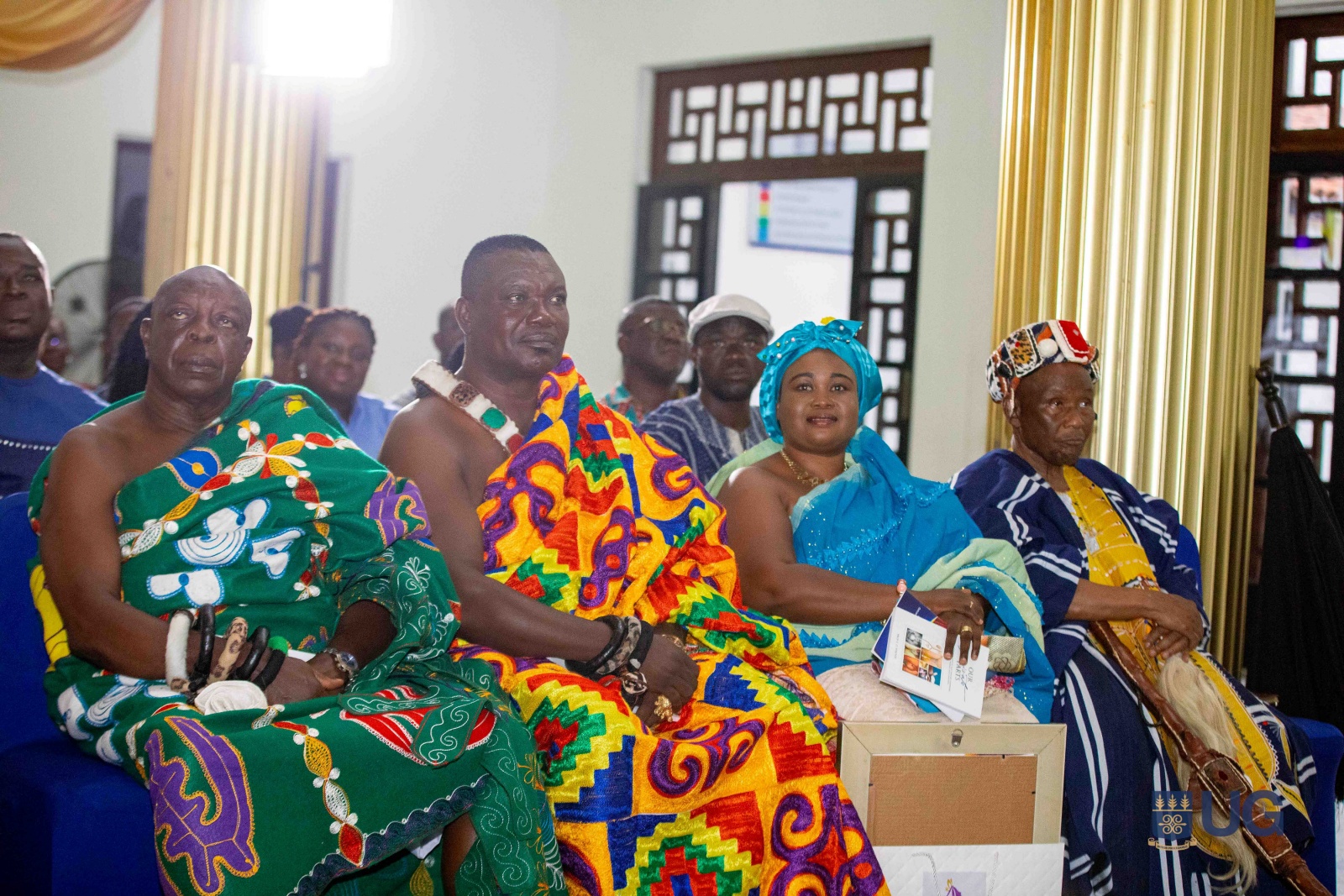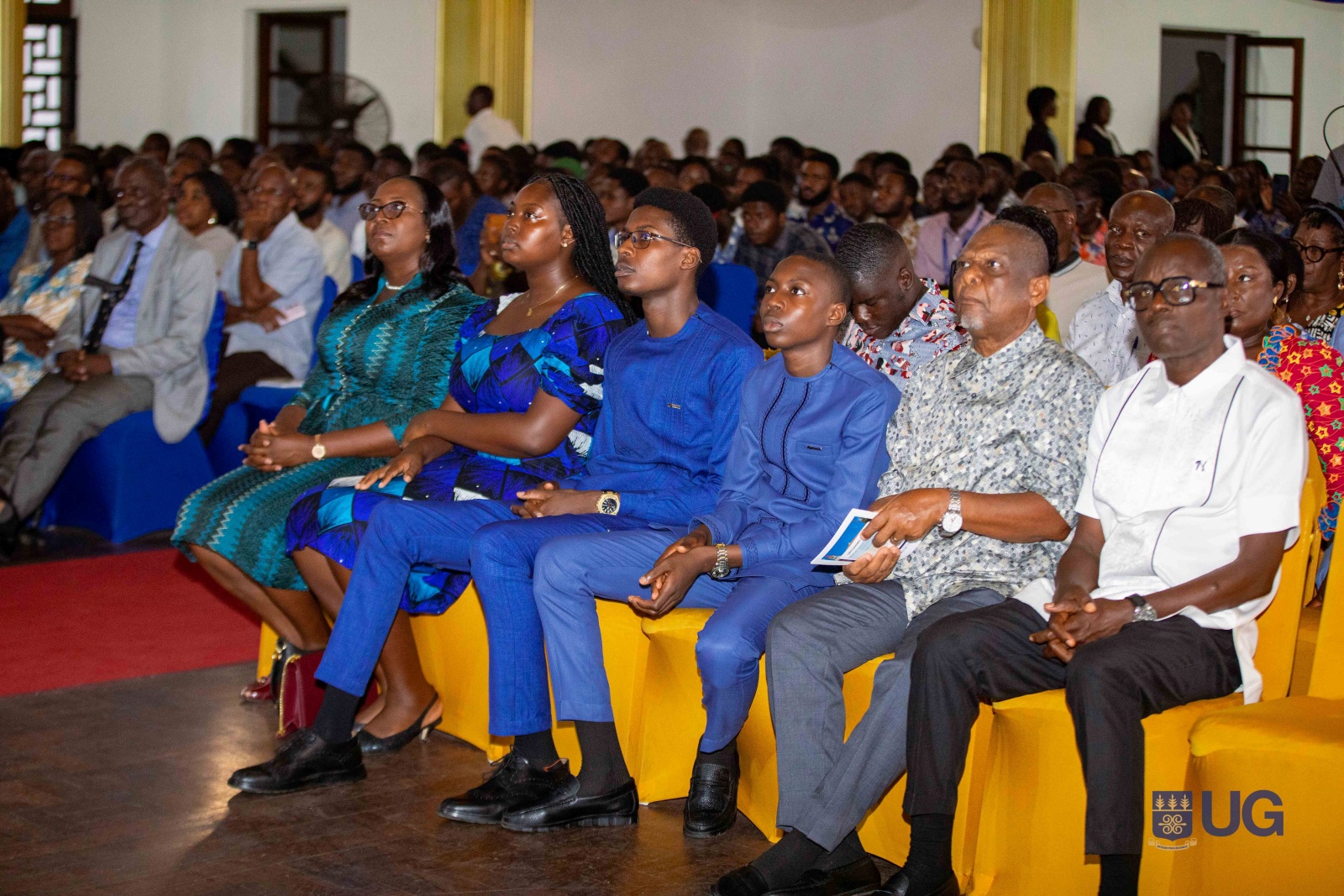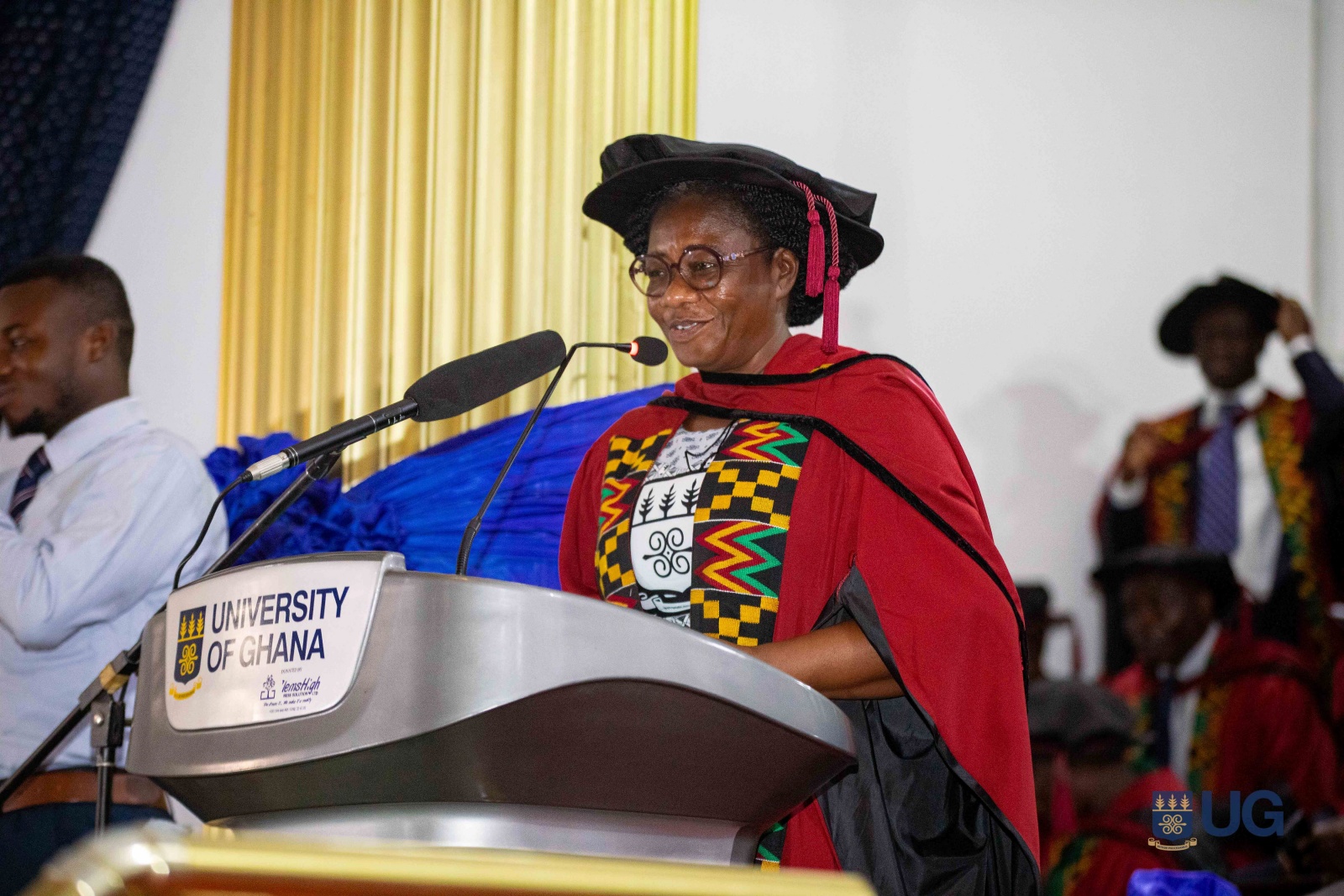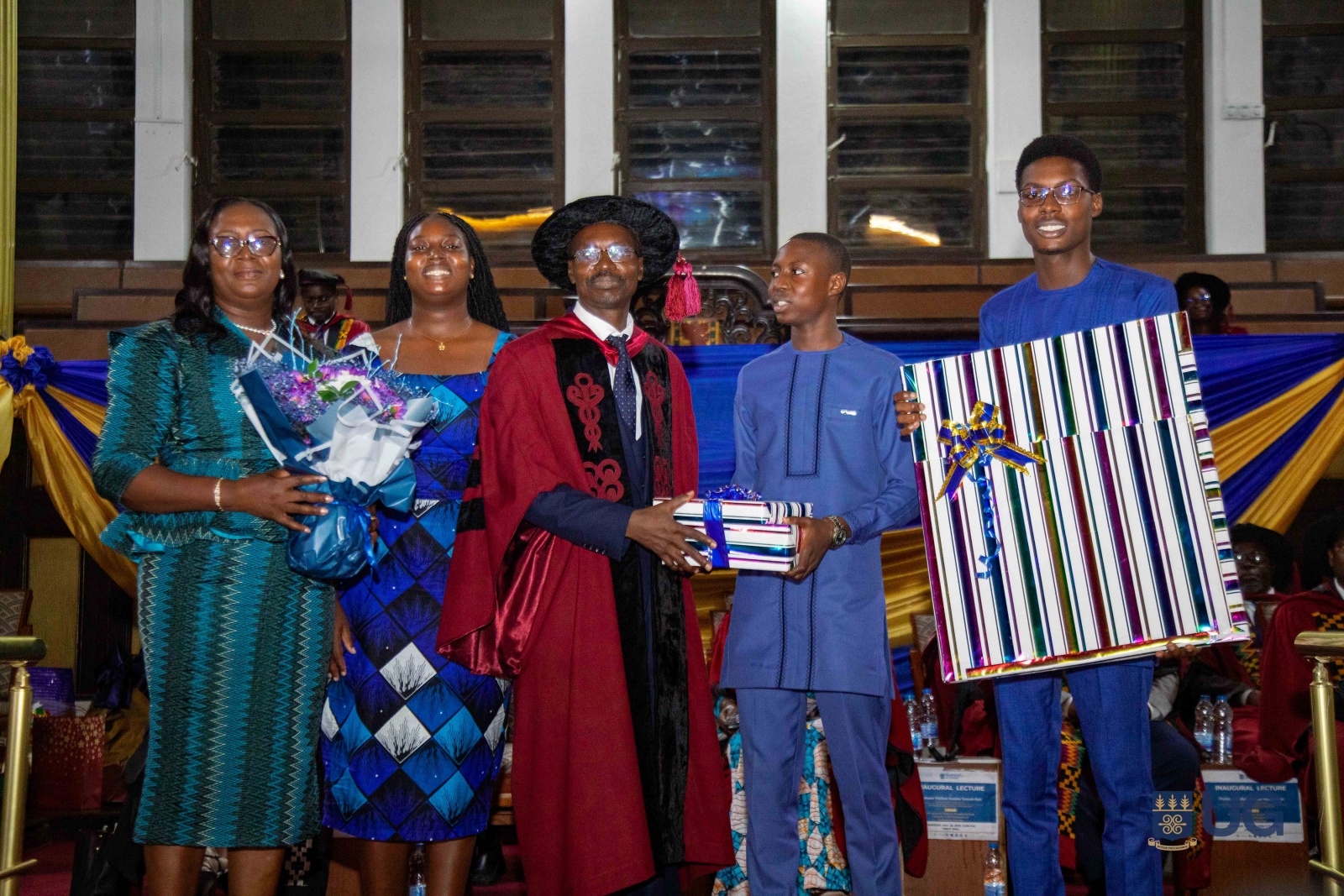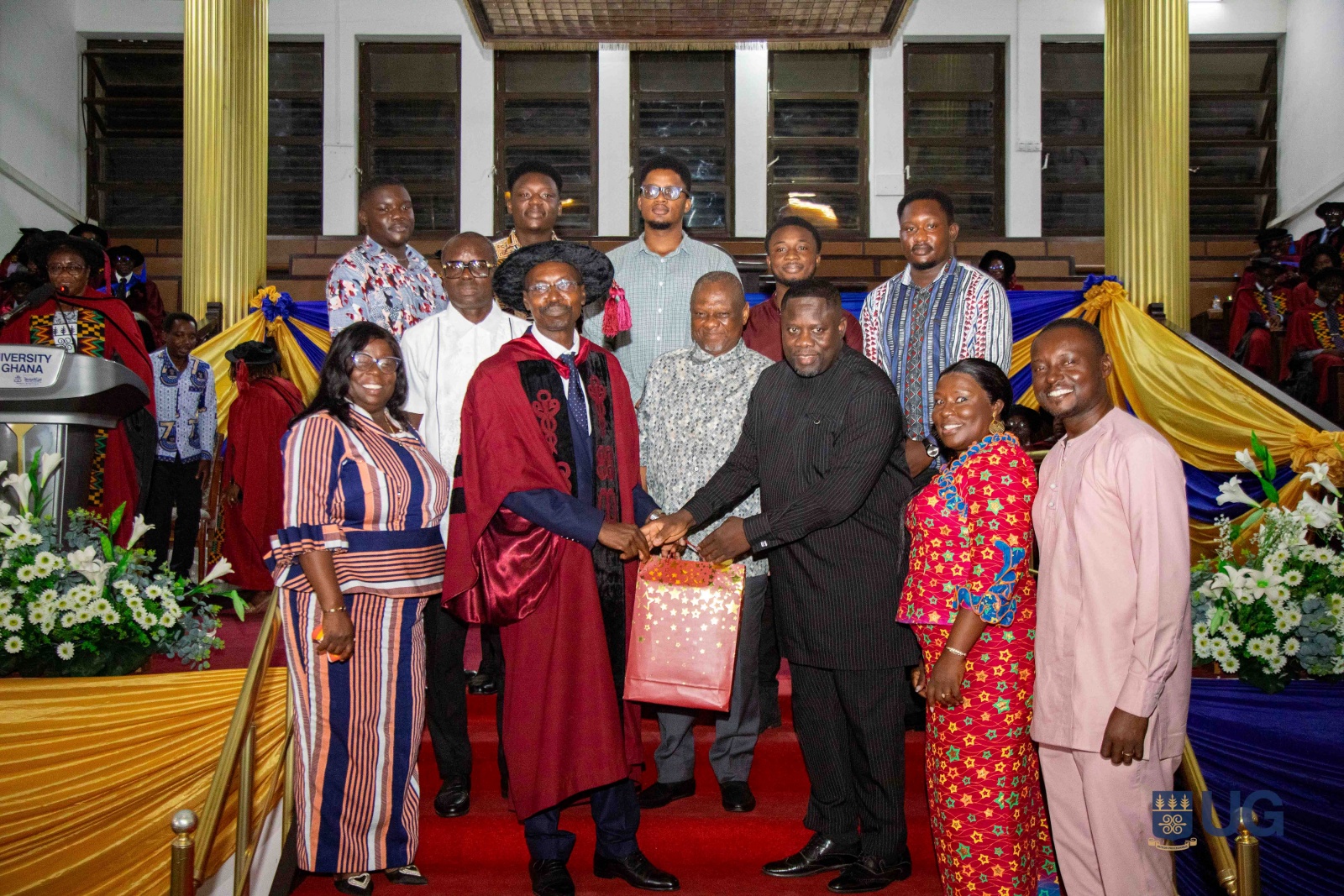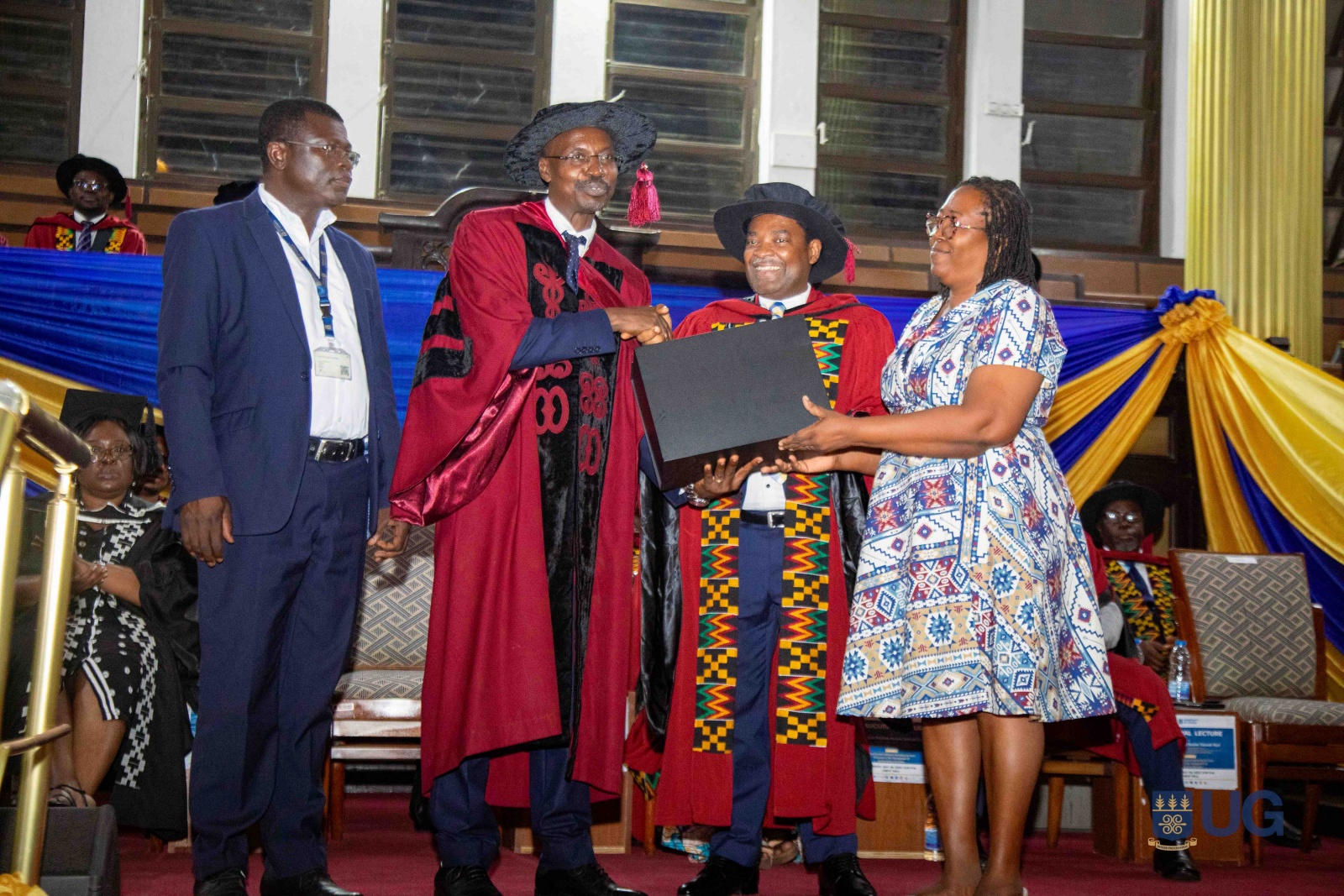Renowned Urologist Prof. Yamoah Kyei Calls for Openness in Tackling Genito-urinary Disorders
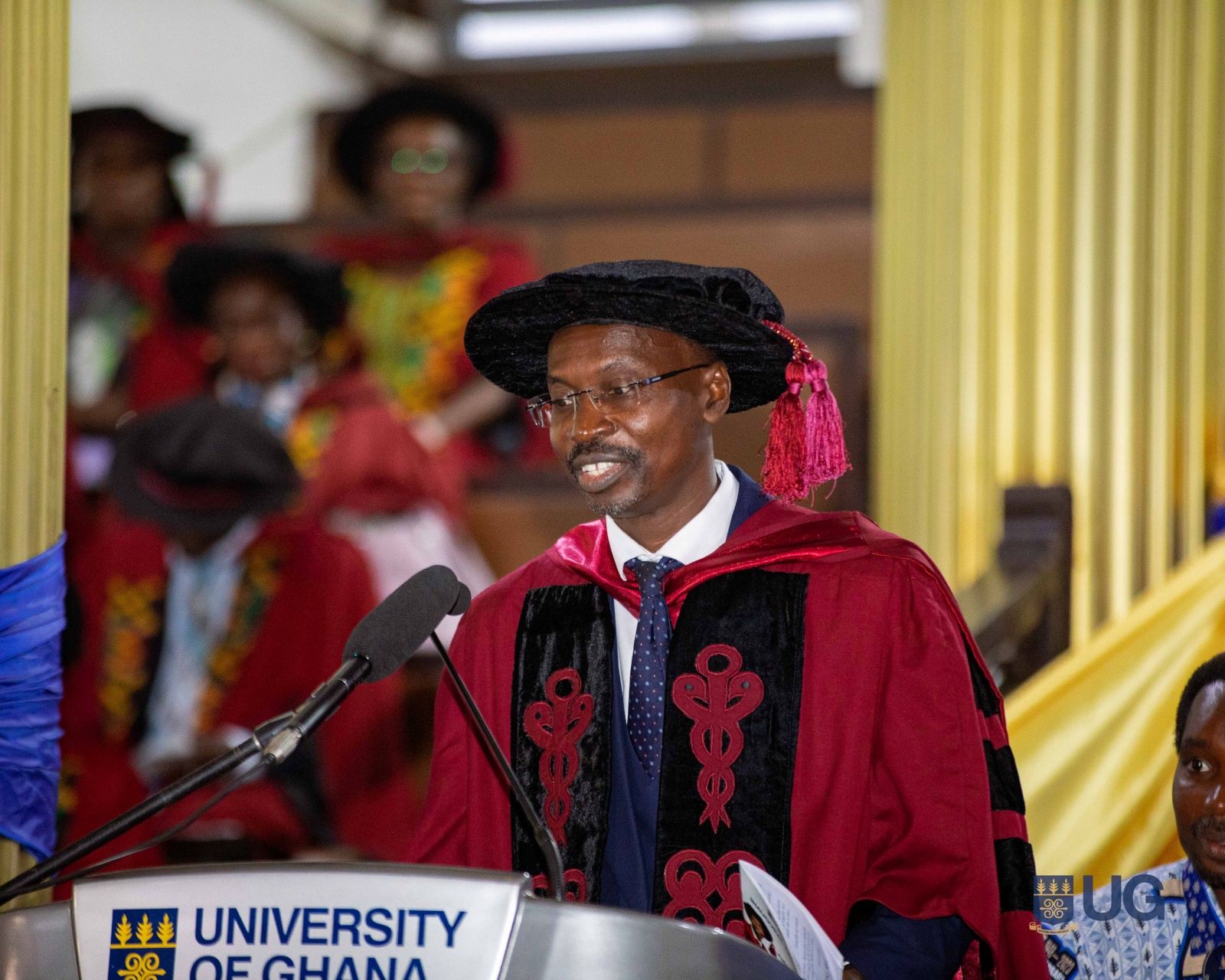
A genito-urinary Surgeon and Head of the Department of Surgery at the University of Ghana Medical School, Professor Mathew Kwame Yamoah Kyei, has called on Ghanaians to overcome cultural taboos and openly seek treatment for genito-urinary disorders to improve health outcomes.
He made the call during his inaugural lecture, delivered on the topic, “Naked but not Ashamed: Revealing for Good Outcomes in the Management of Genito-urinary Disorders.”
Prof. Kyei noted that despite widespread awareness of the importance of health, many people delay treatment due to shame or cultural inhibitions surrounding the genito-urinary system. “Covered (bodies) cannot be cured. Exposure offers a great chance of cure,” he stated. “When patients reveal what is going on with their genito-urinary health, we are better able to diagnose and treat effectively.”
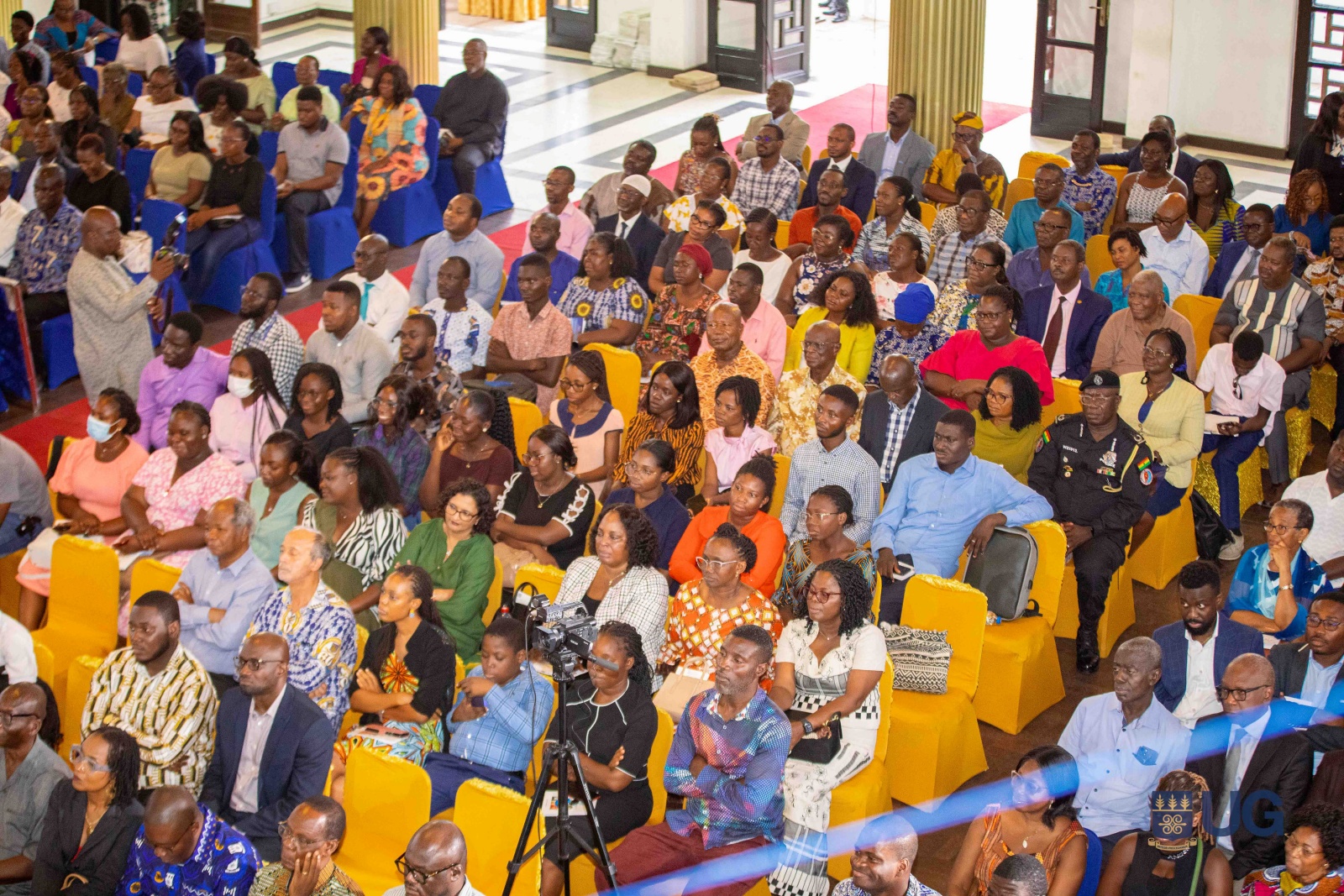
The renowned Urologist used the platform to share findings from his research and clinical practice, highlighting major developments in prostate treatment, pain management in surgical procedures and rising cases of kidney stones.
Addressing treatment options for Benign Prostate Hyperplasia, he said a long-held belief that African men have overly large prostates unsuitable for minimally invasive surgery has been disproved by local research. “Our research revealed that 75 percent of the prostates were smaller than 60 grams, which is within the range for minimally invasive treatment,” he said.
Prof. Kyei added that, “We now use transurethral resection of the prostate (TURP) for over half of our cases.”
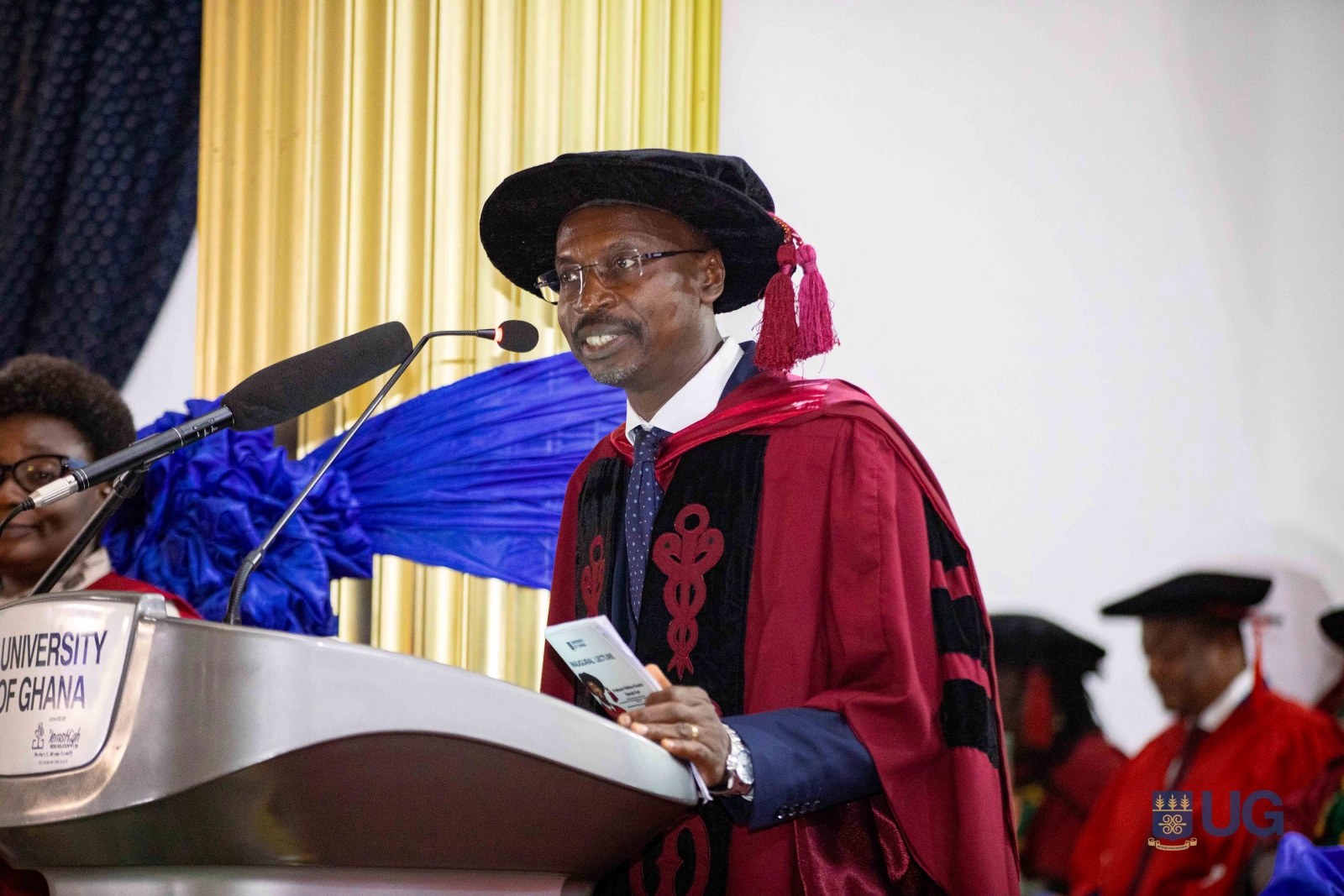
On the issue of rising kidney stone cases, Prof. Kyei expressed concern about possible environmental factors contributing to the trend. “Urinary stones, which were once uncommon, have now become a common presentation. Is it a fallout of global warming or the rising cost of high-quality water? That is something we need to look into,” he said.
He further assured the public that procedures like prostate biopsy, often feared for their associated pain, are now significantly less painful. “We conducted a study and found that pain levels post-procedure averaged 1 to 2 out of 10,” he explained. “Most patients only need a day’s course of paracetamol and many don’t even need that.”
Prof. Kyei also warned against unnecessary panic when screening for prostate cancer. “If your PSA level is between 4 and 10 ng/ml, about 90 percent of cases are not cancer. It’s important not to panic. Just book an appointment with your urologist,” he advised.
The lecture also touched on less-discussed topics such as penile fractures and masturbation-related injuries. “We need to talk about these things and treat them appropriately. Surgical outcomes are often very good,” he revealed.
Prof. Kyei, who also serves as Chairman of the Kidney Transplant Team at the Korle-Bu Teaching Hospital, has over two decades of experience in Urology. He has published over 50 scholarly works and played a leading role in training new specialists and shaping national health policy.
The inaugural lecture drew a large audience made up of academics, clinicians, students and members of the public.
In her Chairperson's remarks, Vice-Chancellor Prof. Nana Aba Appiah Amfo commended Prof. Mathew Yamoah Kyei for drawing attention to a sensitive yet crucial area of healthcare that is often avoided due to cultural and religious barriers.
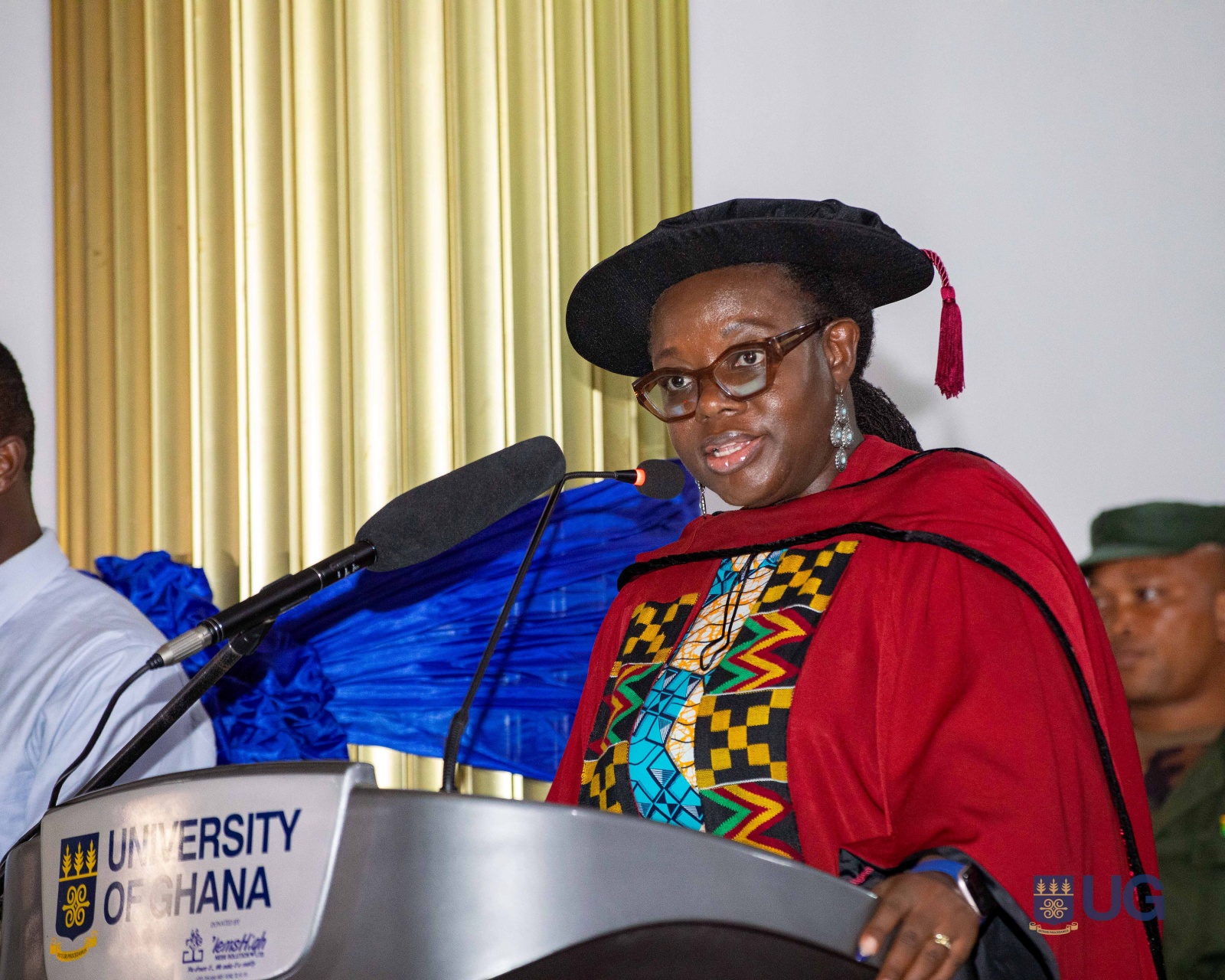
She noted that with over 25 years of surgical experience and two decades of specialisation in genito-urinary surgery, Prof. Kyei was well-positioned to lead such an important conversation.
“There are conditions under which the private parts must be revealed, not for shame, but for healing,” she said, adding that the evening’s lecture offered valuable insights into clinical interventions and research findings that continue to improve health outcomes.
Earlier, Registrar Mrs. Emelia Agyei-Mensah highlighted the significance of inaugural lectures, describing them as a key academic tradition that marks the promotion to full professorship and formally presents a professor’s scholarly contributions to the university and the public.
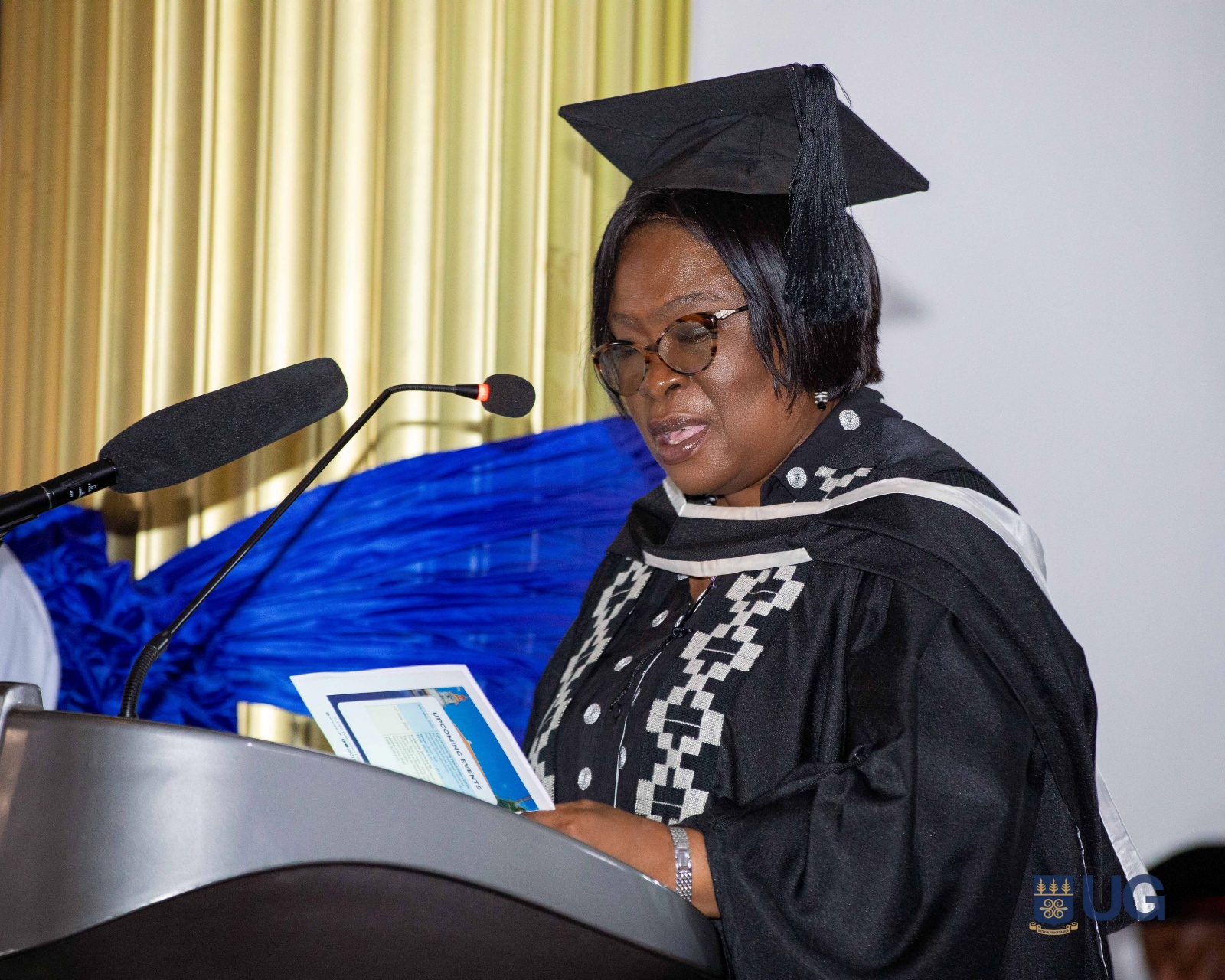
She indicated that these lectures serve as a platform for knowledge sharing, often tackling pressing societal challenges and offering innovative solutions. Mrs. Agyei-Mensah also noted that inaugural lectures reinforce institutional pride by showcasing the intellectual strength of the University, while inspiring younger academics and promoting engagement between academia, policymakers, industry leaders, alumni and the broader community.
At the conclusion of the lecture, Professor Mathew Kwame Yamoah Kyei received presentations from various units in the University, family members and institutions he has collaborated with throughout his career.
